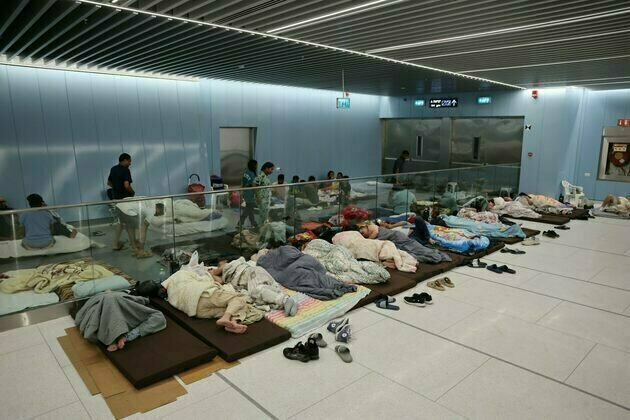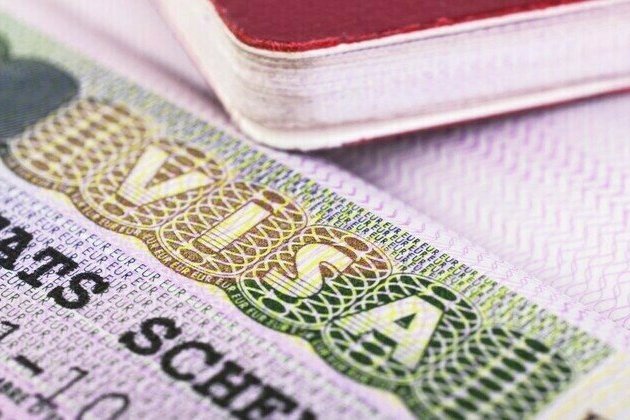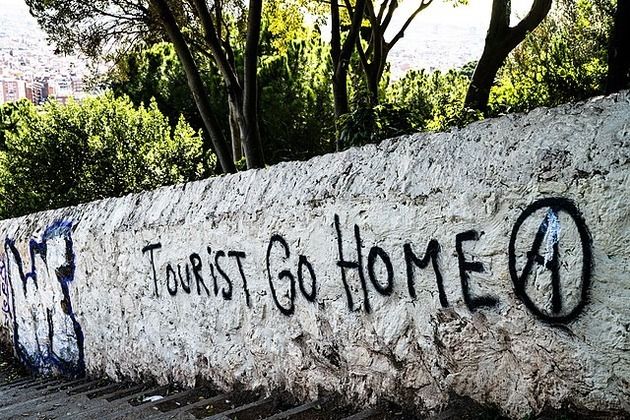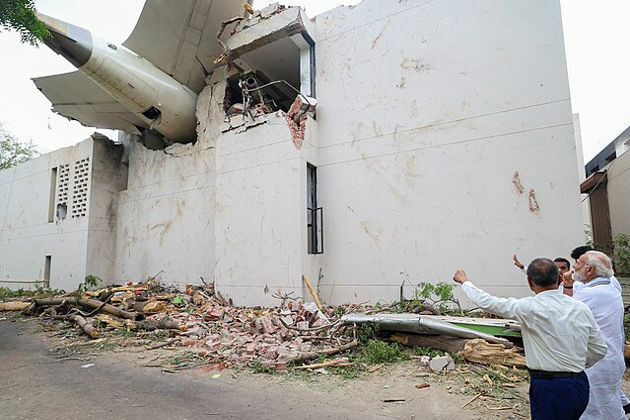Australian citizens in Iran and Israel are desperate to leave. Is the government required to help?
The Conversation
19 Jun 2025, 01:19 GMT+10

As thousands of Australian citizens and permanent residents stuck in Iran and Israel continue to register for repatriation flights, the government is scrambling to find safe ways to evacuate them.
With the airspace over both countries closed, the government is considering other ways to bring them home.
The current plan is to charter buses from private companies to take people from Israel into neighbouring Jordan. As Prime Minister Anthony Albanese stressed: "We want to make sure people are looked after, but they need to be looked after safely as well".
This is not the first time Australia has faced challenges in evacuating nationals stranded abroad. When conflict, disasters or other emergencies occur overseas, the government regularly works to bring Australians home.
In the early days of the COVID pandemic, for instance, the government arranged repatriation flights and established quarantine facilities to assist Australians who were stuck outside the country. Australia has repeatedly assisted its citizens caught in conflict zones to get back home, including from Afghanistan in 2021 and Lebanon in 2024.
And when an earthquake devasted Vanuatu last December, Australia moved swiftly to get Australians out.
While there is a longstanding and widespread practice of governments repatriating their nationals in emergencies, countries generally do not have a legal responsibility to do so.
Instead, governments' decisions are discretionary and made on a case-by-case basis. They are often influenced by diplomatic, logistical and security considerations.
Governments have a right - but not a duty - to provide consular assistance to their nationals abroad. This includes issuing travel documents, liaising with local authorities and, in exceptional cases, facilitating evacuations.
The Consular Services Charter outlines what Australians abroad can expect from their government. It makes clear that while the government will do what it can, there are limits. Assistance is not guaranteed, especially in areas where Australia has no diplomatic presence or where security conditions make intervention too dangerous.
The Department of Foreign Affairs and Trade (DFAT) is the lead agency responsible for coordinating Australians' evacuation with embassies, airlines and international partners. Decisions to evacuate are ultimately made by the minister for foreign affairs following a recommendation, where possible, by the Inter-Departmental Emergency Task Force (IDETF).
Repatriation efforts are guided by the Australian Government Plan for the Reception of Australian Citizens and Approved Foreign Nationals Evacuated from Overseas (AUSRECEPLAN). This arrangement that sets out a process for "the safe repatriation of Australians, their immediate dependants, permanent residents and approved foreign nationals (evacuees) following an Australian government-led evacuation in response to an overseas disaster or adverse security situation". It outlines how federal, state and territory agencies coordinate to receive and support evacuees once they arrive in Australia, ensuring that returns are not only swift, but also safe and orderly.
Repatriation during a crisis is a complex undertaking. Quite aside from the emergency conditions, which may close off usual travel options or routes, the Australian government cannot force another country to allow an evacuation. It also cannot guarantee safe passage, especially in conflicts.
Identifying and communicating with citizens overseas can also be tricky, often requiring people to have self-registered with consular authorities to receive updates. In addition, consular services may be strained when embassies and consular offices have closed, as is the case in Israel and Iran.
For these reasons, countries sometimes band together to assist each other. For instance, Australia and Canada have agreed that where one has a consular presence but the other does not, they will help to repatriate the other's citizens.
Similarly, the United States helped evacuate Australians and other allies' nationals from Afghanistan after the Taliban takeover in 2021. Countries in the European Union can activate a special regional mechanism to facilitate the repatriation of their citizens caught up in emergencies abroad.
In exceptional circumstances, countries have sometimes extracted their stranded nationals through military operations, known as "non-combatant evacuation operations" (NEOs). This involves the military temporarily occupying a location on foreign soil to evacuate people. Some recent examples include the large-scale evacuations of foreign nationals from Afghanistan in 2021, Sudan during the civil war that began in 2023 and Lebanon during the 2024 Israeli-Hezbollah conflict.
NEOs generally require the consent of the country from where the evacuation takes place, but their precise legal basis remains ambiguous under international law.
In all cases, the evacuation of nationals is operationally complex - as exemplified by the current situation in Iran and Israel. Countries with limited resources may struggle to repatriate their nationals at all. This can mean some foreign nationals are "rescued", while others are left behind.
And, of course, local populations generally aren't eligible for evacuation at all. This can leave people in extremely dangerous circumstances.
That is why we have proposed the creation of an Australian framework for humanitarian emergencies that, among other things, would facilitate the safe and swift departure of certain non-citizens at particular risk. This would underscore that Australia's approach to evacuations is, at its heart, about protecting people during crises.
 Share
Share
 Tweet
Tweet
 Share
Share
 Flip
Flip
 Email
Email
Watch latest videos
Subscribe and Follow
Get a daily dose of Brisbane Star news through our daily email, its complimentary and keeps you fully up to date with world and business news as well.
News RELEASES
Publish news of your business, community or sports group, personnel appointments, major event and more by submitting a news release to Brisbane Star.
More InformationAustralia
SectionCanada seeking calm at G7, despite abrupt departure of Trump
BANFF, Alberta: The recent G7 summit has convened for the second and final day in the picturesque Canadian Rockies amidst escalating...
Australian citizens in Iran and Israel are desperate to leave. Is the government required to help?
As thousands of Australian citizens and permanent residents stuck in Iran and Israel continue to register for repatriation flights,...
Migrating bogong moths use the stars and Earth's magnetic field to find ancestral summer caves each year
It's a warm January summer afternoon, and as I traverse the flower-strewn western slopes of Australia's highest mountain, Mount Kosciuszko,...
EU could cancel visa-free travel for Israelis Euronews
Brussels has introduced new rules that could place restrictions on countries found in violation of the UN charter or international...
ICC announces schedule for Women's T20 World Cup 2026; India to face Pakistan on June 14 at Edgbaston
Dubai [UAE], June 18 (ANI): The International Cricket Council unveiled the ICC Women's T20 World Cup 2026 schedule on Wednesday, which...
Kisik Lee replaces Baek Woong Ki as India's new recurve archery head coach
New Delhi [India], June 18 (ANI): Republic of Korea's Kisik Lee is set to be the new head coach of India's national recurve archery...
International
Section'Tourists go home': Anti-over-tourism protests erupt in Barcelona
BARCELONA/MADRID, Spain: With another record-breaking tourist season underway, thousands of residents across southern Europe marched...
Flight recorder may reveal cause of deadly crash of Air India Boeing
NEW DELHI, India: The flight data recorder from the crashed Air India plane was found on June 13. This vital discovery may help investigators...
Severe storm strikes Dongfang in Southern China
BEIJING, China: A typhoon altered its course and struck Hainan Island, southern China, late on the night of June 13. Typhoon Wutip...
Canada seeking calm at G7, despite abrupt departure of Trump
BANFF, Alberta: The recent G7 summit has convened for the second and final day in the picturesque Canadian Rockies amidst escalating...
UNAIDS: Trump’s HIV aid cuts risk reversing global progress
JOHANNESBURG, South Africa: A key global plan to end AIDS as a public health threat by 2030 is now in deeper jeopardy after the United...
Trump leaves G7, calls for evacuation of Iran's capital
CALGARY, Alberta, Canada - U.S. President Donald Trump has announced he is leaving the G7 summit after just one day, and after refusing...











